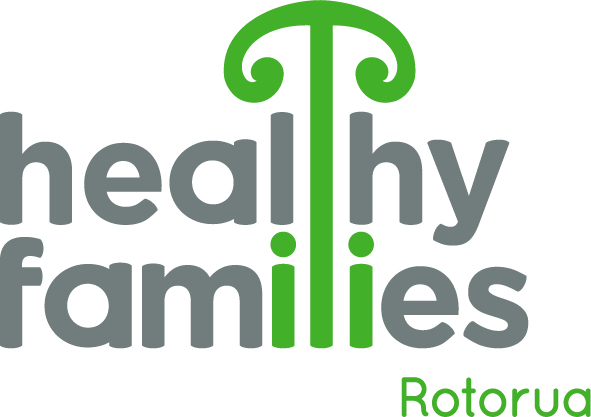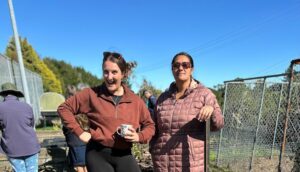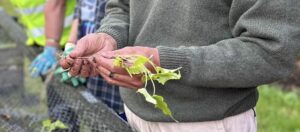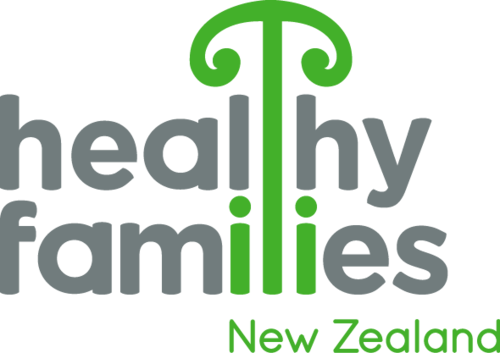Healthy Families Rotorua’s newest addition, lead enabler/project coordinator Te Raipine McLeod (Te Arawa, Tūhoe) is quickly making an impact by creating and delivering Te Awhero – a uniquely designed te reo Māori programme to the team.
The seeds of Te Awhero were sewn last year. As part of our performance appraisal process, we identified and set team and individual goals and established our learning and development pathways.
Healthy Families Rotorua manager, Jenny Kaka-Scott, says if you want to build a high-performing team, you’ve got to be intentional about it.
She says we developed a road map of how to get ourselves to where we wanted to be and ways to measure the impact, effectiveness, and value of our learning and development plans on our personal and business outcomes.
“I asked everyone to identify where they wanted to improve within their roles, and we also discussed professional development opportunities.
“We set out on a path of academic learning to strengthen our theoretical understandings and improve our research skills. We committed to undertaking Healthy Families NZ skills and capability building around our tools and the process of innovation and systems thinking.
“The third piece was identifying where individuals personally wanted to improve outside of those two areas. The resounding response was increasing their knowledge of te reo Māori and Te Arawa tikanga, kawa, and history.
“With the Māori systems approach being a fundamental aspect in our impact strategy, we felt we needed to constantly upskill ourselves in that area to help us connect better with our community and make more informed decisions around our Māori systems regeneration,” says Jenny.
Jenny steered the team into the University of Canterbury’s Masters of Māori & Indigenous Leadership programme because of its strong connection with the mahi the team was already doing. She is also putting together a programme of the most important tools and processes for innovators.
And now the te reo programme.
“Te Aka Whai Ora created a couple of RFPs called Te Ao Māori approaches and Mātauranga Māori solutions, and we successfully applied for funding to help resource our kaupapa. We are grateful for this approach by Te Aka Whai Ora which allows us to upskill our teams in this way.
“I think when you get intentional, luck comes to your doorstep. Serendipitously, Te Raipine was interviewed for the lead enabler role and just happened to have the reo tikanga and mātauranga to help us. As her first task, she took the team’s learning and development aspirations and created the Te Āwhero programme which we started this week.
“Coming up, we’ve got a wānanga with Toi Tangata. Again, serendipitously. Part of our Te Awhero programme is to hold three wānanga over the year, so that’s going to be our first wānanga as a team. The expectation is that our team will become more knowledgeable and confident in the area of te reo Māori and Te Arawa kawa, tikanga, and history. We all think that would make us stronger people, and a stronger team,” says Jenny.
Te Raipine says the feedback from the team’s appraisals provided her with a good foundation on how to develop Te Awhero.
“I decided to go right back and teach the basic structure of a mihi. I want everyone to have a better understanding and foundational knowledge about mihi and whaikōrero at the end of the programme.
“It’s cool to share little things that I know to help full other people’s kete. Even though I might think it’s not a lot, it’s actually something to everyone here,” says Te Raipine.
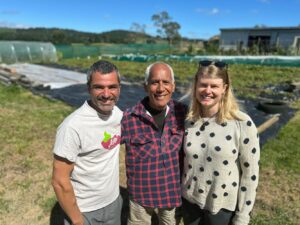
Creating sustainable change
Kai Rotorua’s Te Rangikaheke Kiripatea (centre) with Kaharoa Community Maara kaitiaki, Amir and Astrid Namdari.
